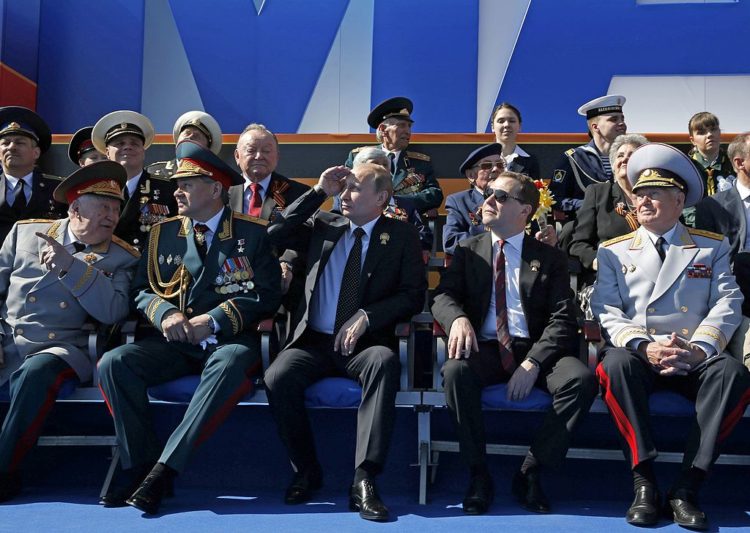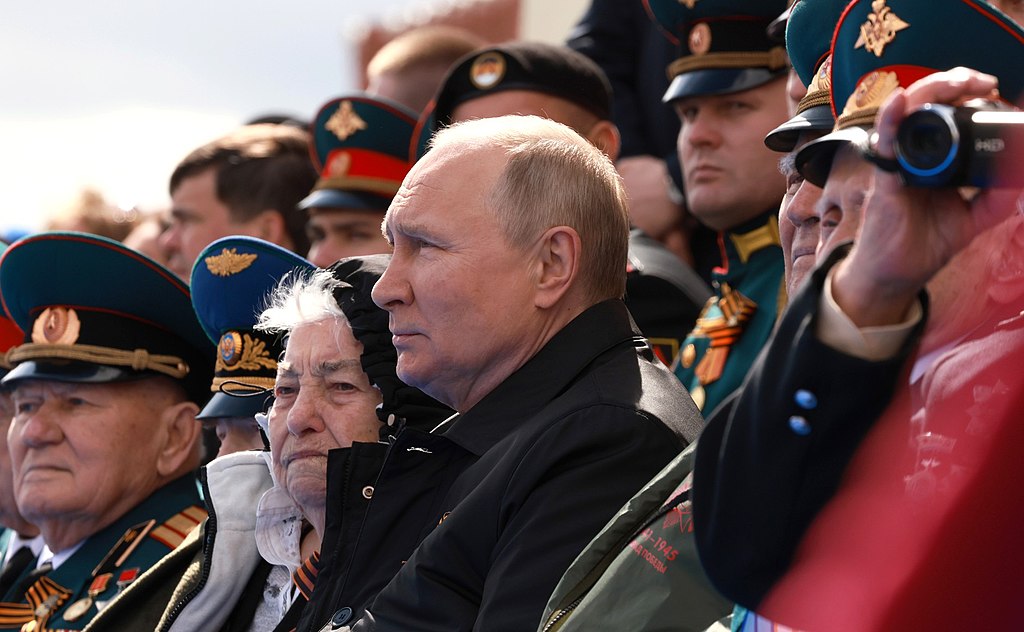international community with two choices—either back the brutal but secular dictator in Assad or the genocidal terrorist organizations such as al-Qaeda or ISIS.
The strategy was akin to Assad’s original tactics during the early stages of the civil war. Then, from the notorious Sednaya prison in Damascus, Assad released hundreds of hardline Islamists under “amnesty.” The strategy was to allow them to reign terror and massacre Syrians—effectively hijacking the revolution and giving the Baathists more legitimacy in their campaign to consolidate and not cede power.
With the rebels not having a trusted Western partner, they were left on their own, allowing Russian and Syrian Forces to pick them off, especially with barrel bombs and ‘double tapping’ strikes. Along with calling bluff over Washington’s red lines on chemical weapons usage, Moscow became ever more emboldened.
2014 Ukraine
Utilizing energy such as Nordstream to manipulate European politics and taking a gamble on lukewarm red lines by NATO over Georgia, the Russian military would take advantage of Ukraine’s Revolution and the state of their armed forces. Sending unmarked green troops, Russia took over and annexed Crimea with minimal casualties. This was due to the horrid condition of Ukraine’s military and mass defections to the Russian side.
Ukraine’s tumultuous state of its military would be seen when Russian Special Forces, alongside the FSB, ignited the War in Donbas after the Crimea invasion. Here, Moscow took advantage of a disorganized Kyiv and laid the groundwork for the eventual full-fledged invasion in 2022.
A Disastrous 2022 Invasion
Overconfidence, arrogance, and poor intelligence ultimately led Putin to invade Ukraine fully—something the Russian military was clearly unprepared for. Invading during the mud season saw Moscow lose an incalculable amount of armor and artillery, with disastrous military losses at Hostomel and the Kyiv Suburbs.
Victories in Mariupol and Severodonetsk were ultimately pyrrhic as Ukraine’s attrition warfare made Russia’s manpower combat ineffective to where the Ukrainian Armed Forces made strides in the occupied territory such as Kharkiv and Kherson. Russia’s elite naval infantry brigade was reconstructed on several occasions due to catastrophic losses. Their elite paratroopers (VDV) have been ineffective throughout the conflict, and most Spetsnaz has been killed and wounded in action to where it could take years or decades to replenish and retrain elite special operation forces.
Inside the Russian Military and Why it’s Now Faltering
When Vladimir Putin reconstituted the Russian military, he turned the mighty bear into a completely ‘yes man’ fighting force. Like any other hardline autocrat in history, Putin feared a military coup or uprising against his rule and put inexperienced and undisciplined loyalists in charge who would never openly disagree with him (i.e., Shoigu and Gerasimov).
Unlike Western militaries, Russia does not have a valuable or structured NCO corps where enlisted can execute tasks without officer oversight. As a result, inexperienced junior officers do not have a say over their bureaucratic field commanders. This has led to disastrous effects such as the catastrophic Battle of Vuhledar and HIMARS strikes, where conscripts were crowded in barracks full of ammunition and fuel.
There is also the difference between Chechnya, Georgia, Syria, and Ukraine from 2014 to Ukraine to today—modern-day Russia was not prepared for a competent military with adequate leadership and unit cohesion. This country would not accept Russians as “brothers” and a Churchill-Esq wartime leadershMoreover, the transformation of Ukraine from its novice Soviet doctrine to a more Western style of warfare has caught Russia’s Ministry of Defense off-guard.
Training, which started under the United Kingdom in 2014, gave Kyiv ample time to prepare for a full-scale invasion, as seen with extensive fortifications in cities in the Kyiv suburbs and the Donbas region. However, Putin had kept invasion plans in a close-knit circle, in which most deployed forces did not know they were preparing for war until the last moment. This also played a significant role as field and junior officers could not play meticulously as they were not given objectives until the final few days before February 24th, 2022.
No longer having the aura of military invincibility and desperate to have a favorable settlement on their terms in Ukraine, Russia has self-inflicted wounds on its military that will not recover for several decades. Becoming self-arrogant against more handicapped opponents in Chechnya, Georgia, and Syria, Ukraine is the first competent military Russia has faced since Germany in World War Two. Unlike Germany, invading Ukraine was not an existential crisis, but Moscow made it into one by overestimating their capabilities.











COMMENTS